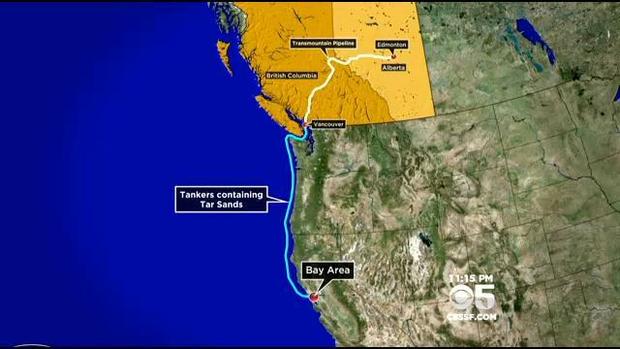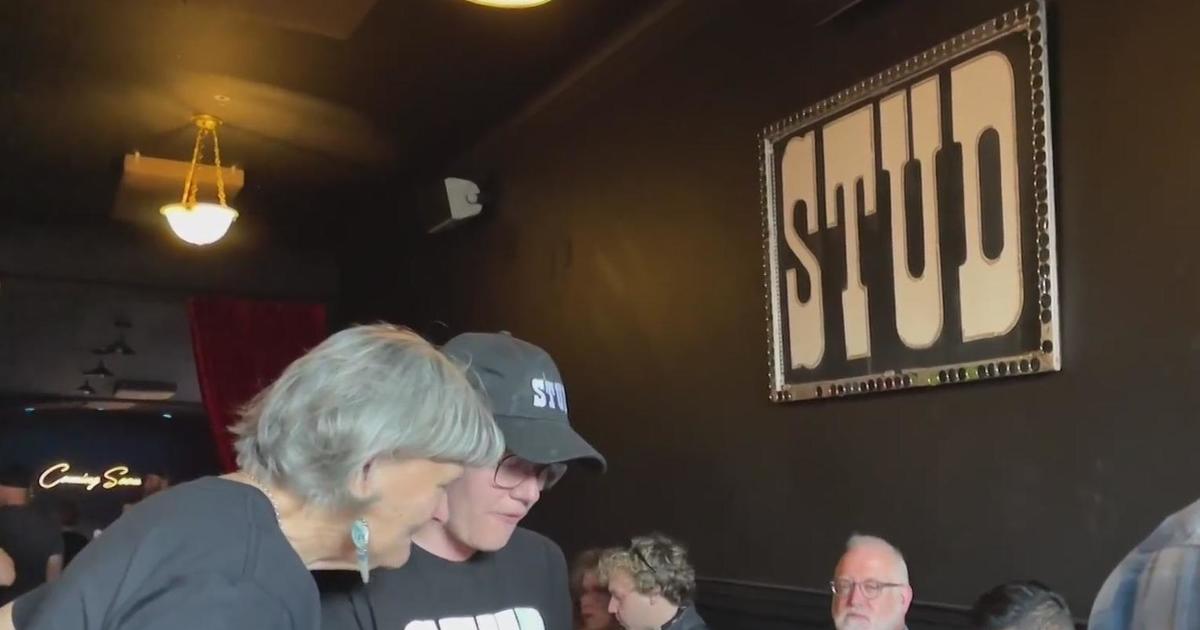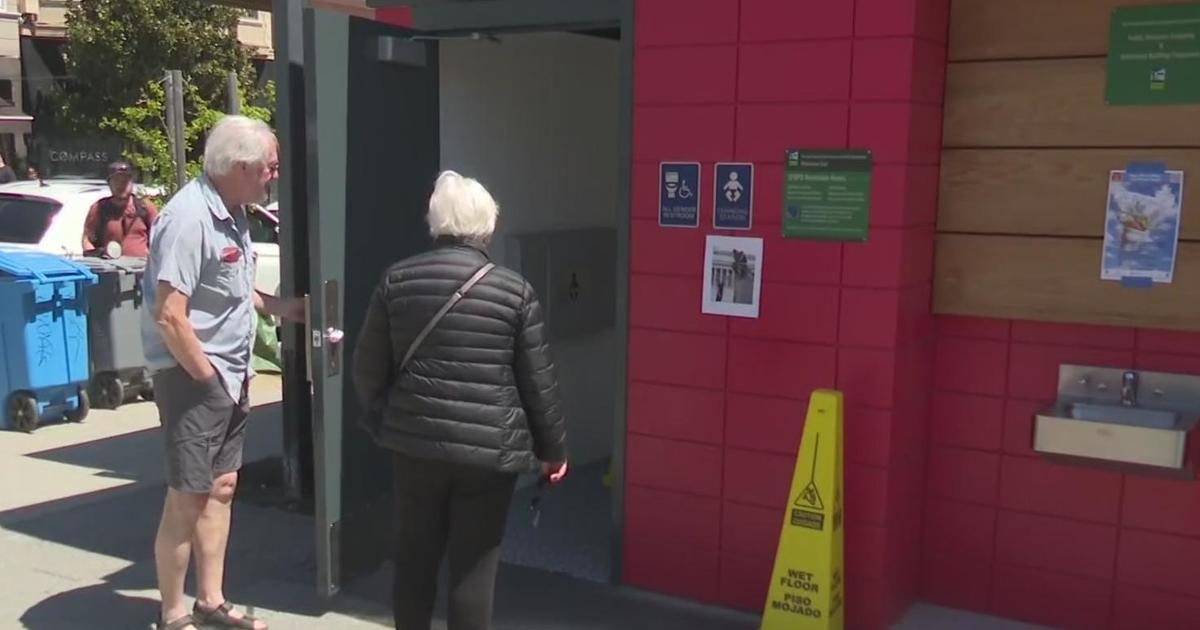Refineries To Ship Even Dirtier Tar Sands Oil Into Bay Area; Fracked Crude By Rail Gets Too Pricey
SAN FRANCISCO (CBS SF) -- It's an unexpected consequence of the drop in oil prices. Trains carrying explosive fracked crude oil from North Dakota are no longer rolling through our neighborhoods. Crude by rail has become too expensive.
Instead local refineries are turning to a cheaper alternative, that poses a new kind of danger.
Sejal Choksi-Chugh with San Francisco Baykeeper can't forget the day the tanker ship Cosco Busan crashed into a Bay Bridge tower, spewing 53,000 gallons of bunker fuel into the bay. "It was getting on boats it was getting on birds it was everywhere," she said.
But the environmentalist says that's nothing compared to what could happen if there's a spill of a new kind of cargo headed our way, called tar sands crude, the dirtiest crude on the planet. "We are looking at a product that sinks. Its very heavy," she said.
UPDATE: National Resources Defense Council Releases Study On Tar Sands
There is huge supply of tar sands crude in Alberta Canada, and it's cheap. Since they can't get North Dakota Bakken crude by rail, refineries here in the Bay Area are gearing up to bring the Alberta crude in by ship.
"Today's refineries are all designed to take ships in," said energy consultant David Hackett. He says two thirds of the crude supplying Bay Area refineries already comes in on tankers, so adding tar sands to the mix makes sense.
"The California refineries are designed to process crude that is heavy and dense, and relatively high in sulfur. So the Canadian tar sands is the kind of quality that will fit in to the California refineries fairly well," Hackett said.
The plan is to expand an existing pipeline called Trans Mountain, that runs from Alberta to Vancouver, and retrofit a terminal in Vancouver that will transfer the tar sands from pipeline to ship. Then tankers could move it down the coast to refineries in the bay.
Hackett predicts tankers full of tar sands crude could be coming into the San Francisco Bay in large numbers by 2018, a delivery route he believes is much safer than trains. "There are significant safety standards and operating practices that are involved," he said.
Editor's Note: After this report originally aired the National Resources Defense Council released a report detailing what they claim are the potential risks of increased tar sand production on the West Coast. That report is available online here.
But even one accident in the bay could be devastating.
A spill on the Kalamazoo river in Michigan 5 years ago cost $1 billion to mop up, the costliest cleanup in U.S. history. That's because tar sands crude is so dense, it sinks.
"It's going to instantaneously cover the bottom of the bay which will almost automatically kill everything that is on the bay floor," said Sejal. "We shouldn't even be contemplating having those vessels come in to the bay until we are ready to deal with a spill.".
Environmentalists in Canada are mounting strong opposition to the expansion of the Transmountain pipeline, but Hackett says, since there's already an existing route, the project will likely get the green light.
And, by the way, most of the tar sands that will be headed down the Pacific coast will actually be exported to Asia.




